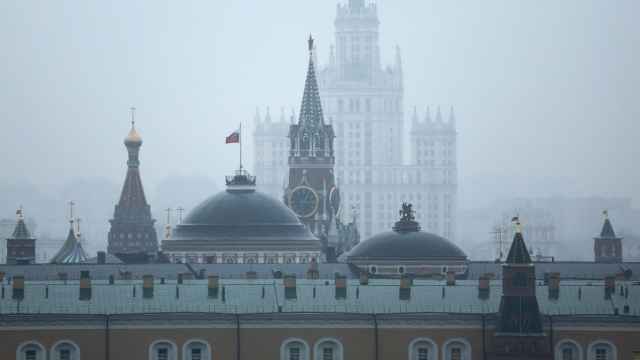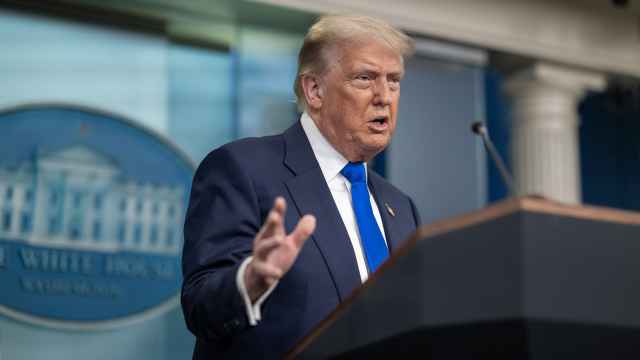EU and Russian officials expressed hope Monday that a dispute over Russia's decision to ban European vegetables amid an E. coli outbreak in Germany would be resolved before a EU-Russia summit at the end of the week.
Asked at a Brussels news conference whether the ban was on the agenda for the two-day summit, which opens Thursday in Nizhny Novgorod, European Commission spokeswoman Pia Hansen replied: "We hope not. We hope to find a solution to this problem and to convince our Russian partners that such measures are not needed and will not affect the topic at the summit. We hope to find a solution before the summit," Interfax reported.
Separately, Russia's EU envoy, Vladimir Chirov, said via video link from Brussels that he hoped "the issue will be clarified" before the summit, Interfax reported.
Russia banned all EU vegetables on Thursday over fears about a new strain of the E. coli bacterial infection that by Monday had killed at least 22 people and sickened more than 2,200 others, mostly in northern Germany.
German scientists on Monday failed to confirm that the source of the outbreak was bean sprouts grown at a vegetable farm in northern Germany. Initial suspicion had fallen on cucumbers, tomatoes or lettuce, possibly from Spain.
The EU has lambasted the Russian ban as unfair. Prime Minister Vladimir Putin acknowledged on Friday that the ban might violate the rules of the World Trade Organization, which Russia hopes to join this year. But he defended the ban, saying, "Cucumbers that people die from after eating really stink."
A Message from The Moscow Times:
Dear readers,
We are facing unprecedented challenges. Russia's Prosecutor General's Office has designated The Moscow Times as an "undesirable" organization, criminalizing our work and putting our staff at risk of prosecution. This follows our earlier unjust labeling as a "foreign agent."
These actions are direct attempts to silence independent journalism in Russia. The authorities claim our work "discredits the decisions of the Russian leadership." We see things differently: we strive to provide accurate, unbiased reporting on Russia.
We, the journalists of The Moscow Times, refuse to be silenced. But to continue our work, we need your help.
Your support, no matter how small, makes a world of difference. If you can, please support us monthly starting from just $2. It's quick to set up, and every contribution makes a significant impact.
By supporting The Moscow Times, you're defending open, independent journalism in the face of repression. Thank you for standing with us.
Remind me later.





